
The 35th International Geographical Congress (IGC), to be held in Dublin, Ireland in August 2024, will provide an opportunity to share the best of global geographic research, discuss common challenges and opportunities and connect with colleagues from across the world.
The event is being organised by the International Geographical Union and the Geographical Society of Ireland.
The IGC 2024 will continue the tradition of previous congresses in recognising that our world faces many common natural and societal challenges that can only be dealt with through global action, understanding and sharing. In this respect, geography as a discipline, its skills, attributes and the geographic mindset has much to offer other disciplines, policymakers, officials, politicians and communities.
The theme of the congress is ‘Celebrating a World of Difference,’ and we are strongly focused through our academic and fieldwork program on:
- supporting intercultural awareness and understanding;
- promoting intellectual diversity as a strength;
- bringing geographic research and thinking beyond the congress walls; and
- grappling with the complex interconnections between people, place and the natural world.
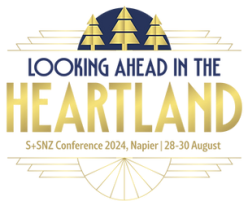
The annual conference of Survey and Spatial New Zealand (S+SNZ) will take place in August in Napier, on the east coast of New Zealand’s North Island.
Napier was the epicentre of destruction wrought by Cyclone Gabrielle in 2023, so the theme for the 2024 event is ‘Looking Ahead in the Heartland,’ which S+SNZ says, refers “not just to the optimism and resilience of provincial New Zealand, but also provides an opportunity to discuss approaches to the challenges of climate change and disaster recovery around the country”.
Super-early bird registration is now open.
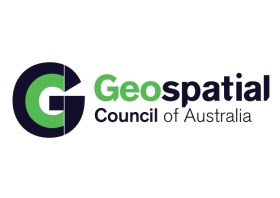
The 2024 NSW Geospatial Excellence Awards will recognise individuals, teams and organisations that have made significant contributions to the field of geospatial technology and applications.
The awards highlight excellence in various categories, including research, project implementation and technological advancements.

The 2024 Queensland Geospatial Conference will be a dive deep into the latest technologies, trends, and best practices shaping the geospatial sector in Australia. The event will give professionals ranging from GIS specialists to remote sensing experts the chance to gain valuable insights and forge new partnerships.
The event will conclude with the 2024 Queensland Geospatial Excellence Awards ceremony, which will celebrate achievements and innovations by individuals and organisations within Queensland’s geospatial sector.
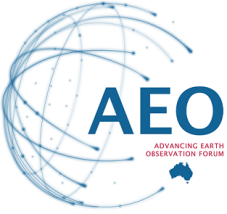
The second Advancing Earth Observation Forum will be held at the Adelaide Convention Centre. The five-day event will attract delegates across a broad spectrum of applications, sensors and interests, including industry, research, defence, government, students and end-users.
The biennial Forum was created to enable the Earth observation (EO) community to communicate, coordinate, collaborate and collectively assess the state of EO in the Australian and Asia-Pacific region.
AEO24 will build on the momentum generated at the inaugural AEO Forum held in Brisbane in 2022, bringing together all sectors involved in EO to propel the sector forward to meet the growing international demand for EO.

The 2024 Tasmanian Geospatial Conference will be a dive deep into the latest technologies, trends, and best practices shaping the geospatial sector in Australia. The event will give professionals ranging from GIS specialists to remote sensing experts the chance to gain valuable insights and forge new partnerships.
The event will conclude with the 2024 Tasmanian Geospatial Excellence Awards ceremony, which will celebrate achievements and innovations by individuals and organisations within Tasmania’s geospatial sector.

The 9th International Colloquium on Scientific and Fundamental Aspects of GNSS will bring together members of the European scientific community and their international partners involved in the use of Galileo and other GNSS in their research.
The colloquium will address several major areas of research:
- Scientific applications in meteorology, geodesy, geodynamics, geophysics, space physics, oceanography, land surface and ecosystem studies.
- Scientific developments in physics with a potential impact on future GNSS, particularly in testing fundamental laws of physics.
- Aspects of metrology such as reference frames, on board and ground clocks, precise orbit determination and time and frequency transfer.
- Scientific aspects of satellite navigation, positioning and its applications.
- Other topics of interest such as big data, IoT, novel disruptive technologies, Cubesats, HAPS, UAVs and autonomous vehicles.
- Systems and technologies for navigation in space.
Image courtesy Lockheed-Martin
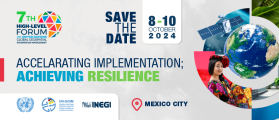
The United Nations Committee of Experts on Global Geospatial Information Management (UN-GGIM), in collaboration with the Government of México through Instituto Nacional de Estadística y Geografía (INEGI) will convene the Seventh High-level Forum on United Nations Global Geospatial Information Management with the theme ‘Accelerating Implementation: Achieving Resilience’.
This seventh edition of UN-GGIM’s High-level Forums will continue UN-GGIM’s regular high-level, multi-stakeholder discussions on global geospatial information management, through the convening of global forums, aimed at promoting comprehensive dialogue among member states, and between member states and relevant international organisations, UN system entities and stakeholders.

For professionals ranging from GIS specialists to remote sensing experts, the 2024 North Queensland Geospatial Conference conference will be an opportunity to gain invaluable insights, forge strategic partnerships, and unlock new avenues for growth and innovation.
For those seeking to expand their skill set, explore new technologies or simply connect with like-minded professionals, the conference will be a gateway to success in the ever-evolving world of geospatial technology.
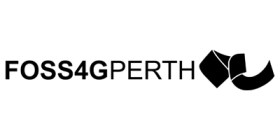
FOSS4G Perth is a local, community-driven gathering of the Perth open geospatial community, focused on sharing news of developments in free and open-source software for geospatial applications.
The event will be an opportunity to share ideas about open-source tools, such as QGIS, PostGIS, OpenStreetMap, Sentinel-2 satellite imagery, Python-based Earth observation libraries and frameworks, GDAL, and many others.
This year’s event will be held in conjunction with the ISPRS Technical Commission IV Symposium.
The 2024 FOSS4G Perth organising committee comprises:
- Bryan Boruff – University of Western Australia
- Cholena Smart – Mammoth Geospatial
- Grant Boxer – Consultant Geologist
- Ivana Ivanova – Curtin University
- John Bryant (Chair) – Mammoth Geospatial
- John Duncan – University of Western Australia
- John Lang – Consultant
- Keith Moss – WA Government
- Michel Nzikou – DMN Solutions
- Nimalika Fernando
- Petra Helmholz – Curtin University
- Piers Higgs – Gaia Resources
- Renee Manser
- Stafford Smith
- Tracey Cousens – Mineral Resources Limited
- Vincent Dinh – GIS Pro


